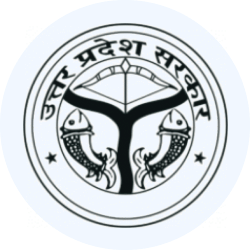Sample Reading Comprehension - 30 | Course for UPPSC Preparation - UPPSC (UP) PDF Download
Directions: Read the passage and answer the questions that follow:
“Rivers should link, not divide us,” said the Indian prime Minister expressing concern over interstate disputes and urged state governments to show “understanding and consideration, statesmanship and an appreciation of the other point of view.”
Water conflicts in India now reach every level; divide every segment of our society, political parties, states, regions and sub-regions within states, districts, castes and groups and individual farmers. Water conflicts within and between many developing countries are also taking a serious turn. Fortunately, the “water wars”, forecast by so many, have not yet materialized. War has taken place, but over oil, not water. Water is radically altering and affecting political boundaries all over the world, between as well as within countries. In India, water conflicts are likely to worsen before they being to be resolved. Till then they pose a significant threat to economic growth, security and health of the ecosystem and the victims are likely to be the poorest of the poor as well as the very sources of water - rivers, wetlands and aquifers.
Conflicts might sound bad or negative, but they are logical developments in the absence of proper democratic, legal and administrative mechanisms to handle issues at the root of water conflicts. Part of the problem steams from the specific nature of water, namely that water is divisible and amenable to sharing; one unit of water is used by one is a unit denied to others; it has multiple uses and users and involves resultant trade-offs. Excludability is an inherent problem and very often exclusion costs involved are very high: it involves the issue of graded scales and boundaries and need for evolving a corresponding understanding around them. Finally the way water is planned, used and managed causes externalities, both positive and negative, and many of them are unidirectional and asymmetric.
There is a relatively greater visibility as well as a greater body of experience in evolving policies, frameworks, legal set-ups and administrative mechanisms dealing with immobile natural resources, however contested the space may be Reformist as well as revolutionary movements are rooted in issues related to land. Several political and legal interventions addressing the issue of equity and societal justice have been attempted. Most countries have gone through land reforms of one type or another. Issues related to forests have also generated a body of comprehensive literature on forest resources and rights. Though conflicts over them have not necessarily been effectively or adequately resolved, they have received much more serious attentation, have been studied in their own right and practical as well as theoretical means of dealing with them have been sought. In contrast, water conflicts have not received the same kind of attention.
1. Most countries have survived them easily.
2. They bring political parties together.
3. They only affect the grass root levels.
1. Trans-border conflicts between developing countries.
2. Water bodies will remain unused and unaffected till the conflict is resolved.
3. Water conflicts have altered the political boundaries within countries.
|
109 videos|340 docs|106 tests
|

|
Explore Courses for UPPSC (UP) exam
|

|
















